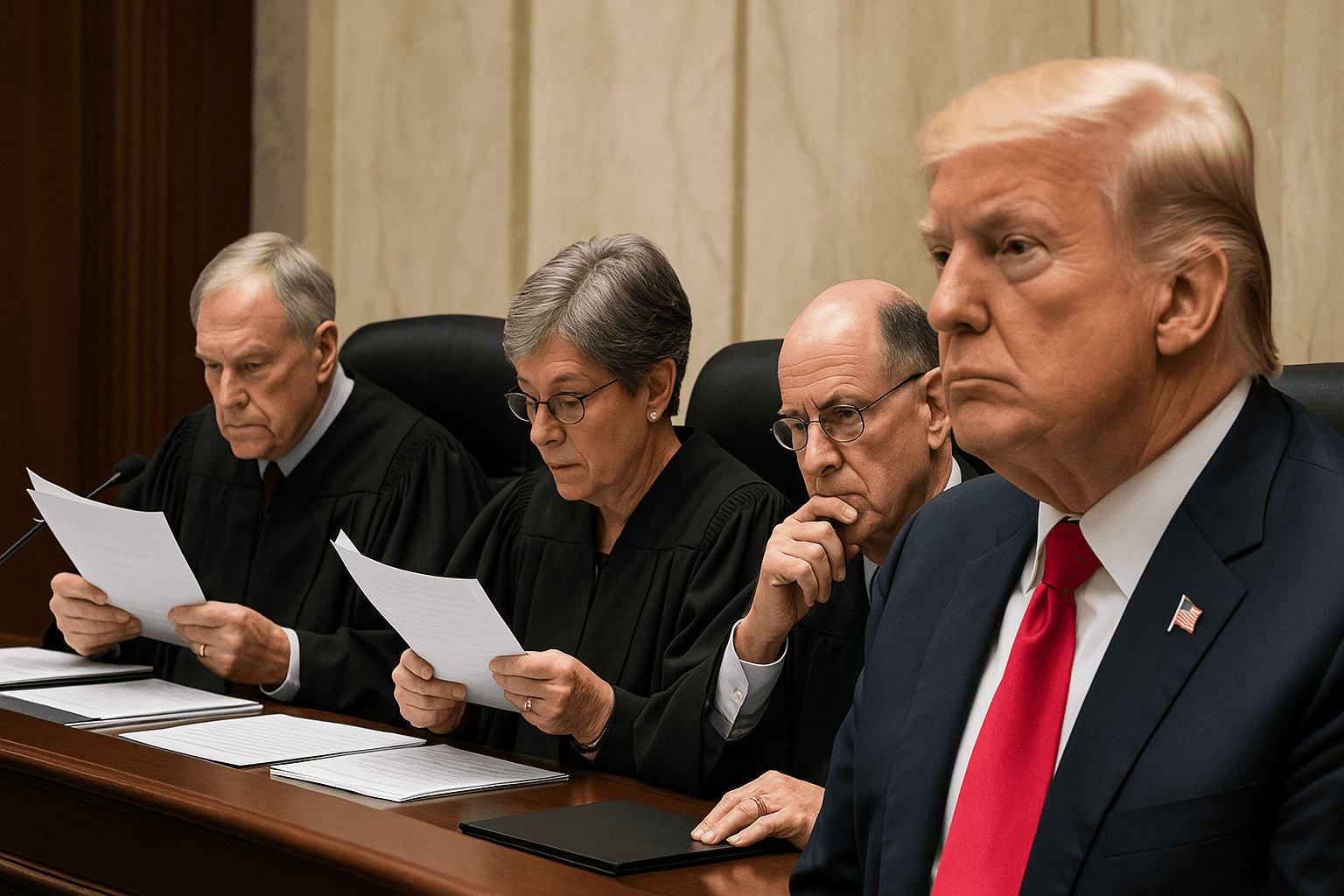
Appellate Judges Question President Trump's Authority to Impose Tariffs Without Congress
Panel questions administration’s legal basis for tariffs, doubting if national emergency law covers trade policy.
Appellate court judges have expressed significant doubt over the legal basis for President Donald Trump's most extensive round of tariffs. On Thursday, members of an 11-judge panel of the U.S. Court of Appeals for the Federal Circuit in Washington appeared unconvinced by the Trump administration's argument that the president could impose tariffs without Congress's approval. The court particularly scrutinised the use of the International Emergency Economic Powers Act (IEEPA) to justify the tariffs.
"IEEPA doesn't even mention the word 'tariffs' anywhere," stated Circuit Judge Jimmie Reyna, highlighting the panel's disbelief at the government's arguments.
Brett Shumate, the attorney for the Trump administration, admitted during the 99-minute hearing that "no president has ever read IEEPA this way," but maintained the action was lawful. The 1977 law, signed by President Jimmy Carter, permits the president to seize assets and block transactions during a national emergency. It was initially used during the Iran hostage crisis and has since been invoked for various global crises, including the 9/11 attacks and the Syrian civil war.
Trump's argument is that the country's trade deficit is so severe that it qualifies as a national emergency under the law. However, in sharp exchanges with Shumate, the judges questioned this claim, asking whether the law applied to tariffs at all and if the levies were a proportional response to the threat identified.
Chief Circuit Judge Kimberly Moore provided an example: "If the president says there's a problem with our military readiness... and he puts a 20% tax on coffee, that doesn't seem to necessarily deal with (it)."
Shumate argued that the IEEPA gives the president "broad and flexible" power to respond to an emergency, but insisted that "the president is not asking for unbounded authority." However, Neal Katyal, an attorney for the plaintiffs, described Trump's actions as a "breathtaking" power grab, suggesting it amounted to the president claiming he could "do whatever he wants, whenever he wants, for as long as he wants so long as he declares an emergency."
No ruling was issued from the bench. Regardless of the decision, the case is widely expected to be appealed to the U.S. Supreme Court.
Trump weighed in on the case on his Truth Social platform, posting, "To all of my great lawyers who have fought so hard to save our Country, good luck in America's big case today. If our Country was not able to protect itself by using TARIFFS AGAINST TARIFFS, WE WOULD BE 'DEAD,' WITH NO CHANCE OF SURVIVAL OR SUCCESS. Thank you for your attention to this matter!"
This case is just one of at least seven lawsuits challenging Trump's use of tariffs on other nations. The plaintiffs include 12 U.S. states and five businesses. The U.S. Constitution gives Congress the authority to impose taxes, including tariffs, but over decades, lawmakers have delegated some power over trade policy to the White House. According to the Budget Lab at Yale University, Trump raised the average U.S. tariff to over 18%, the highest rate since 1934.
For any enquiries or information, contact info@thelawreporters.com or call us on +971 52 644 3004. Follow The Law Reporters on WhatsApp Channels